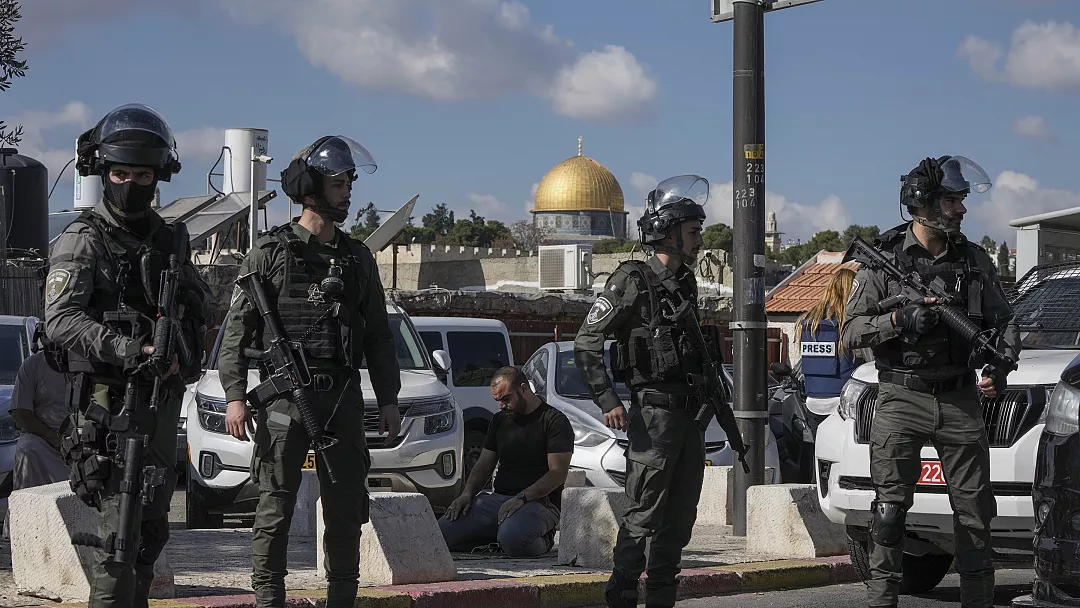
Netanyahu rejects Ben-Gvir's request to further restrict access to Al-Aqsa during Ramadan
Israeli Prime Minister Benjamin Netanyahu's office announced that the number of Palestinian worshippers authorized to enter the Temple Mount will not be reduced during the first week of Ramadan.
The announcement goes against the wishes of Israel's National Security Minister Itamar Ben-Gvir, who called for severe restrictions on the entry of Arabs from inside Israel and Palestinians from East Jerusalem and the West Bank to the mosque during Ramadan.
Netanyahu's office said in a statement: "Ramadan is sacred to Muslims, and the sanctity of the holiday will be preserved this year as it is every year." The statement added: "A security assessment will take place every week, and a decision will be made accordingly."
Netanyahu's office did not specify how many Palestinians would be allowed to pray at the Al-Aqsa Mosque.
The announcement infuriated Ben-Gvir, who accused Netanyahu of "endangering Israelis." "The decision to allow a similar ascent to the Temple Mount in Ramadan as in previous years shows that Netanyahu and the limited government believe that nothing happened on October 7," he said.
"The decision jeopardizes the citizens of Israel and may give an image of victory to Hamas," he added.
Ben-Gvir wants to allow only a few thousand Palestinians to enter the mosque in addition to Arabs over the age of 40 from the Israeli interior.
However, according to Israeli media reports, Galant, Shin Bet security chief Ronen Bar and Chief of Staff Herzi Halevi believe that these restrictions may incentivize individual Palestinian operations against Israel.
Tight restrictions on worshippers' access to Al-Aqsa
Since the start of the war on Gaza on October 7, Israeli police have been restricting access to the Al-Aqsa Mosque on weekdays, but on Fridays the restrictions are more severe, and only the elderly are allowed to enter to pray.
The courtyards and chapels of the Al-Aqsa Mosque in occupied Jerusalem often appear empty of worshippers, since October 7, as the Israeli authorities tighten their measures in West Bank cities and areas, including Jerusalem, and carry out attacks that have killed, wounded and arrested dozens of people.
They also set up checkpoints at the entrances to the Old City to check the identities of passersby and deploy in alleys to prevent young men from reaching the mosque.
Hundreds are forced to pray in the streets near the walls of the Old City, and sometimes violent confrontations erupt, with Israeli forces firing tear gas canisters at worshippers.
(Source: Euronews)








